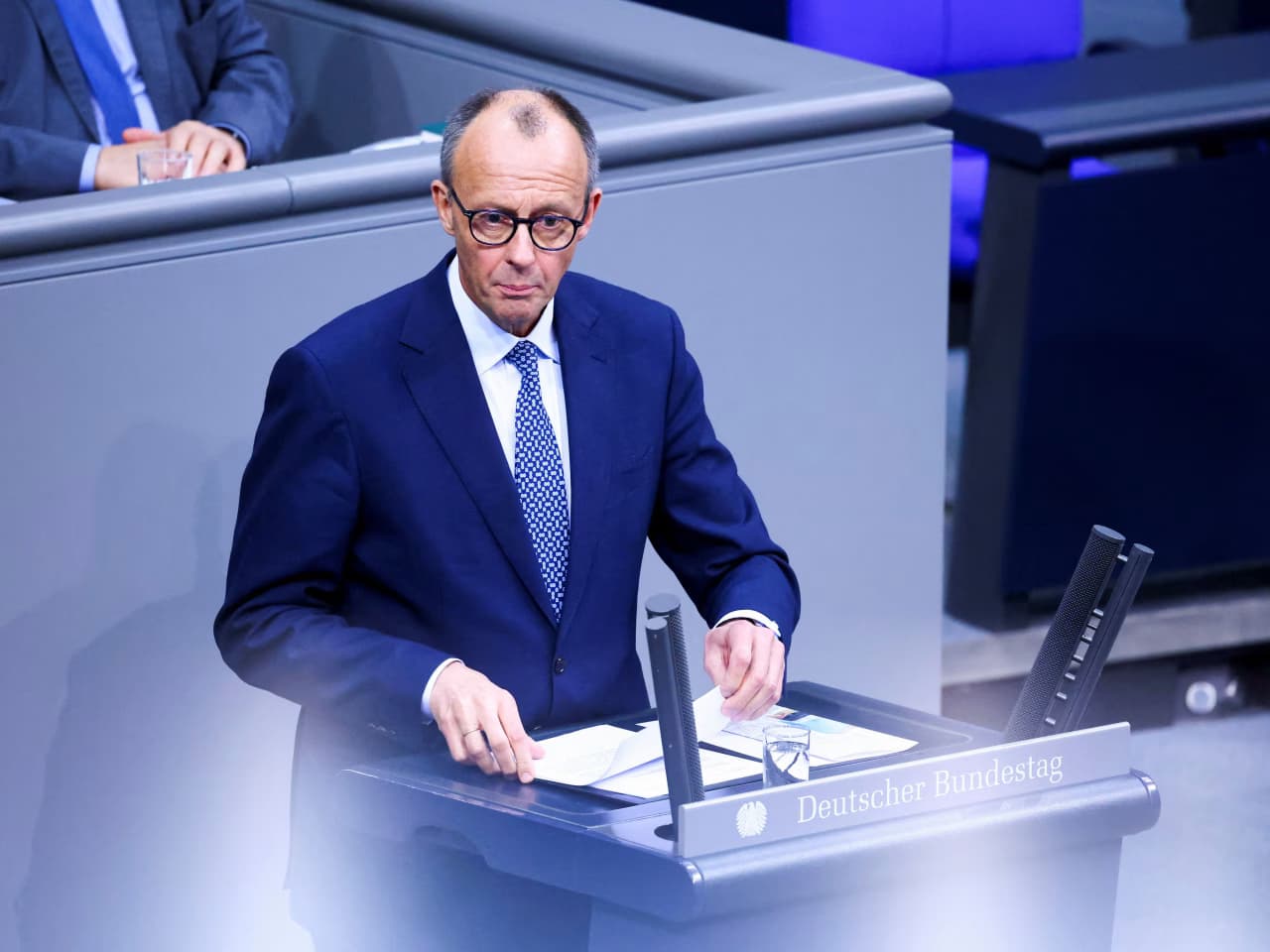We're loading the full news article for you. This includes the article content, images, author information, and related articles.
Chancellor Friedrich Merz's recent remarks on immigration, advocating for "very large scale" expulsions and linking migration to urban security, have ignited a fierce debate in Germany, drawing accusations of adopting far-right rhetoric.

German Chancellor Friedrich Merz is facing significant criticism for what opponents describe as "dangerous" rhetoric on immigration. His recent comments, which included championing "very large scale" expulsions of people from cities and suggesting that anyone with daughters would agree on the need for change, have sparked a national controversy.
Speaking on Monday, October 20, 2025, Merz, who assumed office in May 2025 with a commitment to counter the rise of the far-right Alternative für Deutschland (AfD) party, rebuffed a reporter's question about whether he would retract or apologise for his earlier hardline statements on migration.
"I don't know if you have children, and daughters among them," Merz stated to the journalist. "Ask your daughters, I suspect you'll get a pretty loud and clear answer. I have nothing to take back; to the contrary I stress: we have to change something."
The left-leaning opposition has accused Chancellor Merz of echoing the language of extremist parties. These parties often claim that women and girls are disproportionately targeted by migrants with sexual violence, a narrative that has become a rallying cry for the global far-right.
Ricarda Lang, a prominent Green Party Member of Parliament, criticised Merz for what she termed a patronising message to young women, arguing that it failed to acknowledge their actual political concerns. Lang posted on X (formerly Twitter), "Perhaps 'the daughters' are also fed up with Friedrich Merz only caring about their rights and safety when he can use them to justify his completely backward-looking policies?"
Merz, however, maintained that his priority is "security in public space," asserting that only by guaranteeing this would mainstream political parties regain trust. His earlier remarks last week, which hinted that diversity itself posed a problem in German cities, had already drawn considerable flak.
Since taking office in May 2025, Chancellor Merz's government has implemented stricter border controls, tougher residency and citizenship regulations, and increased deportations. These measures are part of a broader strategy to curb irregular migration and, in his stated aim, to diminish the appeal of the AfD.
In April 2025, Merz announced a new course in migration policy, aiming to "largely end irregular migration" through intensified deportations, an end to voluntary admission programs, and a suspension of family reunification. His government also plans to reverse previous citizenship law reforms, extending the eligibility period for naturalisation from three to five years of successful integration.
The Chancellor's hardline stance on immigration has been a consistent theme, with pledges during his election campaign to toughen migration policy. This approach comes amidst a backdrop of rising support for the AfD, which achieved a record 20.8% in the German federal election in February 2025 and has seen its ratings continue to climb in subsequent polls.
Critics argue that Merz's rhetoric risks stigmatising migrant communities and further dividing German society. The focus on "expulsions on a very large scale" and the linking of migration to urban problems have been interpreted by some as reducing diversity to a visual issue.
The long-term implications of such a hardline approach on Germany's social cohesion and international standing remain a key concern. While the government aims to regain public trust through enhanced security, the method of achieving this is proving highly contentious.
The debate surrounding Chancellor Merz's immigration rhetoric is expected to intensify as Germany approaches upcoming state elections in 2026. The government's continued implementation of stricter migration policies and the public's reaction, particularly in light of the AfD's growing influence, will be crucial to observe. The effectiveness of these policies in addressing perceived security concerns while upholding human rights will remain a central point of contention.
Keep the conversation in one place—threads here stay linked to the story and in the forums.
Sign in to start a discussion
Start a conversation about this story and keep it linked here.
Other hot threads
E-sports and Gaming Community in Kenya
Active 9 months ago
The Role of Technology in Modern Agriculture (AgriTech)
Active 9 months ago
Popular Recreational Activities Across Counties
Active 9 months ago
Investing in Youth Sports Development Programs
Active 9 months ago